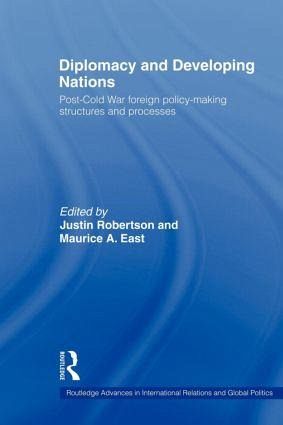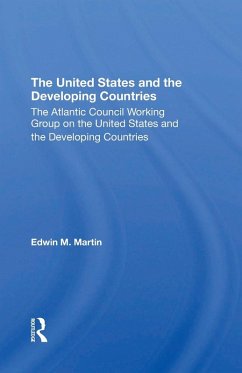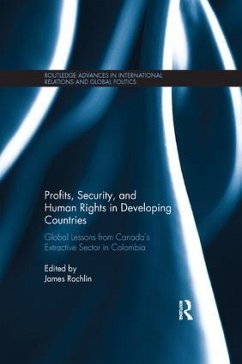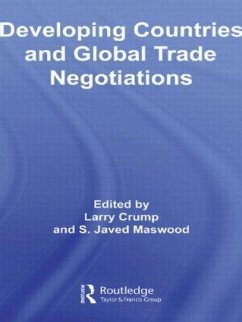
Diplomacy and Developing Nations
Post-Cold War Foreign Policy-Making Structures and Processes
Herausgeber: East, Maurice A.; Robertson, Justin
Versandkostenfrei!
Versandfertig in 1-2 Wochen
71,99 €
inkl. MwSt.

PAYBACK Punkte
36 °P sammeln!
This volume explores the foreign policy environment facing developing nations and their particular foreign policy-making structures and processes. By defining foreign policy broadly to incorporate the activities of a range of state actors and non-state actors, the book broadens the range of analytical frameworks for studying foreign policy-making in developing nations. Thus, the actions of small groups of elites, international institutions and transnational networks are seen to be part of foreign policy-making, as well as the traditional operations of foreign ministries. The volume is comprise...
This volume explores the foreign policy environment facing developing nations and their particular foreign policy-making structures and processes. By defining foreign policy broadly to incorporate the activities of a range of state actors and non-state actors, the book broadens the range of analytical frameworks for studying foreign policy-making in developing nations. Thus, the actions of small groups of elites, international institutions and transnational networks are seen to be part of foreign policy-making, as well as the traditional operations of foreign ministries. The volume is comprised of an extensive introduction, four thematic chapters, six country studies and a conclusion that ties together common themes. These serve as a useful contribution to the analysis of foreign policy-making in developing nations, a neglected area in the comparative study of foreign policy.














